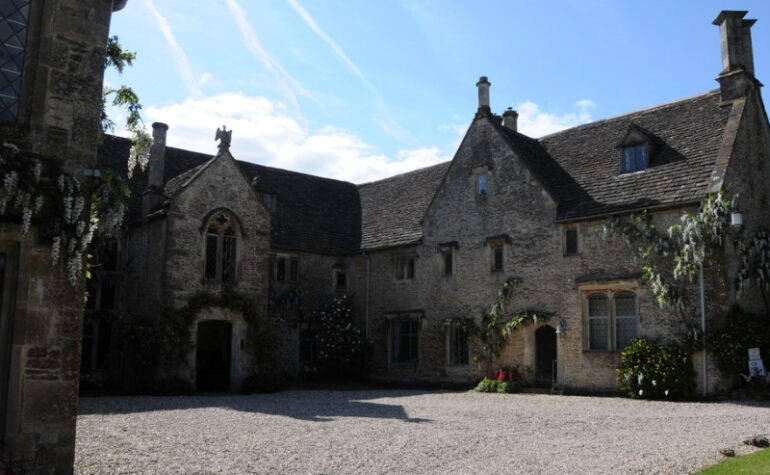It is a truth universally acknowledged that there can never be too many Jane Austen adaptations. In 2020, Autumn de Wilde presented her vision of Emma, which adds modern overtones to the story whilst staying true to the original. A delight to watch.
By Emily Lüter
Bild: Via Wikipedia, CC BY-SA 2.0
»Emma Woodhouse, handsome, clever, and rich, with a comfortable home and a happy disposition,« who has enthralled readers throughout the ages, has made it to the cinema yet again. Autumn de Wilde, a film director and a photographer interested in musicians as her subject, presents a contemporary vision of the novel that is both colourful and carefully choreographed. Emma has been brought to the screen nine times and has been adapted into modern interpretations like Clueless as well as a web series, Emma Approved. Despite the abundance of film versions, novel adaptation number 9 is well worth watching.
A Beloved Heroine
The eponymous Emma is an irresistible character who never ceases to inspire film directors, actors, and readers. Next to Elizabeth Bennet, she is Austen’s most popular heroine. It might be one of the author’s greatest qualities that her stories and characters never lose their relevance and always allow for new interpretations, even 200 years after their creation. According to her nephew James Edward Austen-Leigh, Austen once said about Emma: »I am going to take a heroine whom no one but myself will much like.« She could not have been more wrong.
»Not that one. The next,« Emma instructs a servant who picks her hothouse roses in the opening scene. Miss Woodhouse always knows exactly what she wants. Or so she thinks. In the community of Highbury, the young heroine meddles in match-making for all her acquaintances. Only she herself is determined to remain unmarried. Since the intricacies of the human heart cannot be so easily tended to as flowers, a series of misunderstandings, unrequited love, and conflicts ensues, until all is resolved happily ever after, as in every Austen novel.
Old Characters in New Colours
De Wilde brings new colours not only to the costumes – the palette is dominantly pastel and even the church pews sport a soothing mint colour – but also to the characters. Mr Woodhouse, a fragile and doddery hypochondriac in the novel, does not seem so weak in the film at all. His physical agility belies his little everyday worries and renders his bearing even more ridiculous. His daughter Emma is delightfully naughty, with a pouting upper lip and large, expressive eyes that twinkle suspiciously whenever a new fancy strikes her. Close-ups of her face allow the story to focus on her and even though one cannot hear her thoughts, one can read them in her expressions. Despite her flaws, or rather because of them, one cannot help but sympathise with and forgive her. This portrayal of Emma is more tongue-in-cheek than the novel’s character and renders her more approachable to modern viewers.
It is not only the main characters who are well-crafted. Harriet Smith, Emma’s new friend, reveals her naiveté with eyes as wide as saucers and a silly laughter. The vicar’s wife, Augusta Elton, is played by Tanya Reynolds with perfect haughtiness and conceit – the ringlets on top of her coiffure stapled just as high as her opinion of herself. Mrs Elton’s husband is equally arrogant. Played by the talented Josh O’Connor, he is the most ridiculous film-Elton yet. The picture frame he buys for the likeness Emma draws of Harriet, with its small wooden doors and blue tassels, is as much exaggerated as his demeanour. His ego could not even fit into the enormous sleeves of his church gown.
De Wilde’s Vision
While staying true to the novel (the witty and ambiguous dialogues that always express more than is said are mostly taken from the book verbatim), de Wilde adds scenes Jane Austen certainly would not have written in her later years: Mr Knightley is washed and dressed by a servant, clearly suggesting that the impeccable appearance of the gentry is not an inherent gift, but the result of careful hygiene and tailoring. A few scenes later, Emma indecently lifts her skirts to warm her hindquarters in front of a sizzling hearth fire: even the landed gentry must get cold in the winter months.
Emma
UK 2020
125 minutes
Director: Autumn De Wilde
Starring: Anya Taylor-Joy, Johnny Flynn, Bill Nighy, Mia Goth, Miranda Hart, Josh O’Connor, Callum Turner, and others
The whole film is carefully choreographed: every movement, every gesture, and even Emma’s meaningful eye blinks are perfectly timed with the music and dialogues. The servants whirl and twirl about, handing out tea and cakes to the main characters, who move around each other as if they were dancing. Each of them is carefully positioned in relation to the others. The flowing motions of the scenes add to the piquancy of the conversations and interactions. They mirror the dynamics of a country ball where personal relationships and questions of rank are revealed in the attendants’ movements.
The Order of Society
Having her own particular mindset, Emma is a heroine who wants to remain independent of a husband, and when she does marry, it is for love. Yet again, she can afford to act like the mistress of her own life with such a considerable fortune. Harriet does love Robert Martin but, as Mr Knightley candidly remarks, she can count herself lucky to marry such a well-off farmer. And even though most readers and viewers laugh at the Eltons, theirs is a perfectly reasonable match with regard to station and money. A connection between Harriet Smith and Mr Elton or Mr Knightley would have been infinitely more unsuitable, which both of them realise sooner than Emma who lives in a privileged dream world of her own.
The film imagines a more harmonious and glossed-over ending than the novel. In the movie, Harriet Smith, a child of unknown origins, turns out to be a trader’s daughter. In the book, Emma and Harriet quietly distance themselves from each other: the order of society must not be broken. In the film, however, Harriet may remain in Emma’s circle of friends as may her husband, the farmer Mr Martin. This modern twist might be historically inaccurate but gives a more hopeful outlook on society and the interplay between wealth, love, and happiness.






